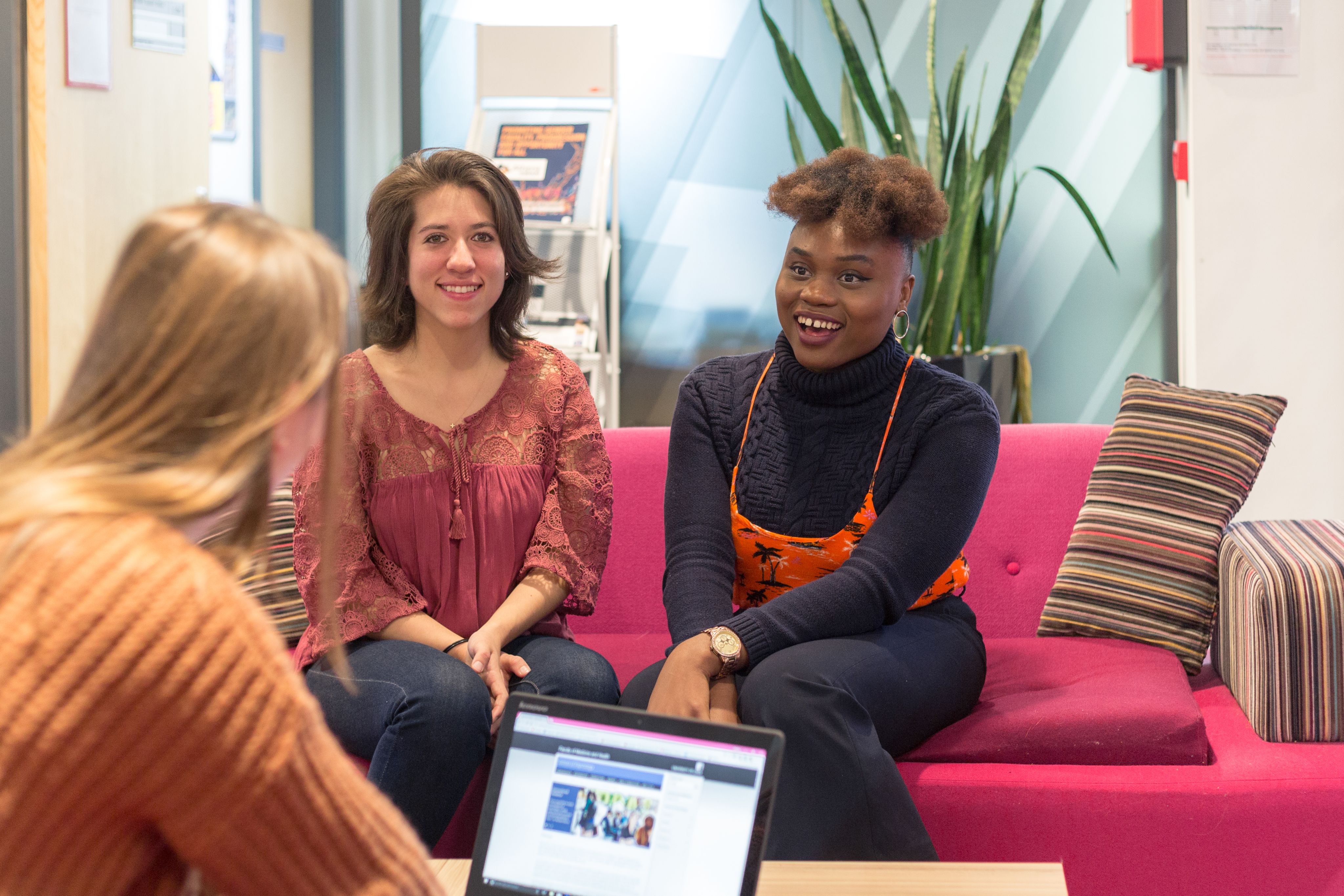Medicine Matters
The impact of the COVID-19 pandemic on our students
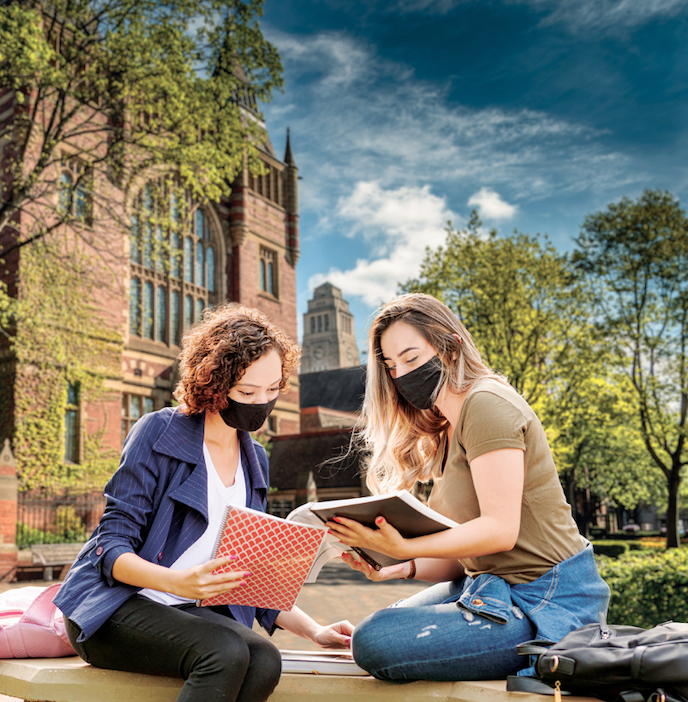
Welcome from the Editor
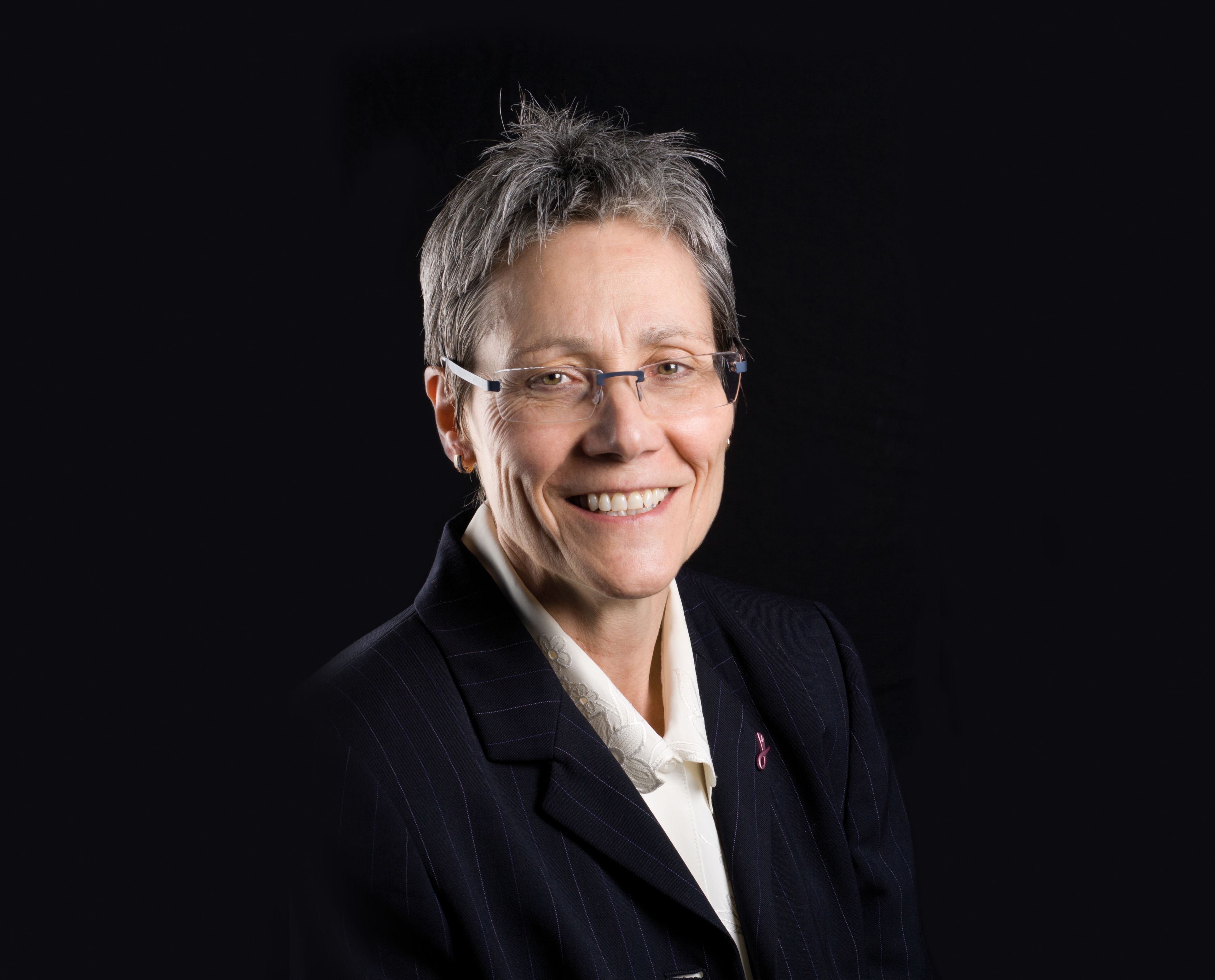
Professor Trudie Roberts
Professor Trudie Roberts
A new normal
Although I’ve never really taken to the phrase the ‘new normal’ I thought it probably had some resonance with what will happen in the country and with Medicine Matters going forward.
After over a year of adapting to and even embracing doing all my teaching online, it has really been brought home to me the importance of the part socialisation plays in learning. This is why so many of us have felt isolated and alone. No one to discuss ideas and difficult areas of knowledge with in a peer to peer informal environment. No chance encounters in a coffee bar to meet and enjoy a supportive chat or develop a potential collaboration. Now I also realise how much I’ve missed, just the general buzz of activity which I find motivating. Of course, there are things that I haven’t missed getting up at 5am and travelling on the M62 into Leeds being one of them and my garden is neater than it has ever been. But one of the privileges of working in a Higher Education Institution is being surrounded by and working closely with talented, creative and innovative individuals. Zoom and Teams hook ups are no substitute for face to face encounters and hopefully we will eventually get back to some form of working that will support personal, not only virtual interaction. Medicine Matters too is changing and in future it will only be available online. I hope you will continue to subscribe and take advantage of the convenience of being able to access a copy wherever and whenever you want.
In this issue we aim to update you on what the Medical School, students and staff have been doing in the lockdown. Everyone has stepped up to the challenges that COVID-19 has brought. It has been a very stressful time for many but looking to the future and going forward under the leadership of a new VC has its excitement as well.
One of the best things about Medicine Matters is that it allows us not only to celebrate the achievements of senior staff but also the successes of our students and early career staff and you can see all these inside this issue.
Finally, the re-opening of the Thackray Museum is also part of this new beginning. Its many years since I took my children on a regular basis to the Thackray and it provided welcome relief to a wet weekend of boredom. How exciting that it is now set to open and entertain, educate and inform a new generation.
So, I hope you can see that despite the trials and tribulations of the last year the School of Medicine is well set to embrace whatever the future and the ‘new normal’ looks like.
Professor Trudie Roberts
Staff Successes

Professor Simone Buitendijk appointed Vice-Chancellor of the University of Leeds
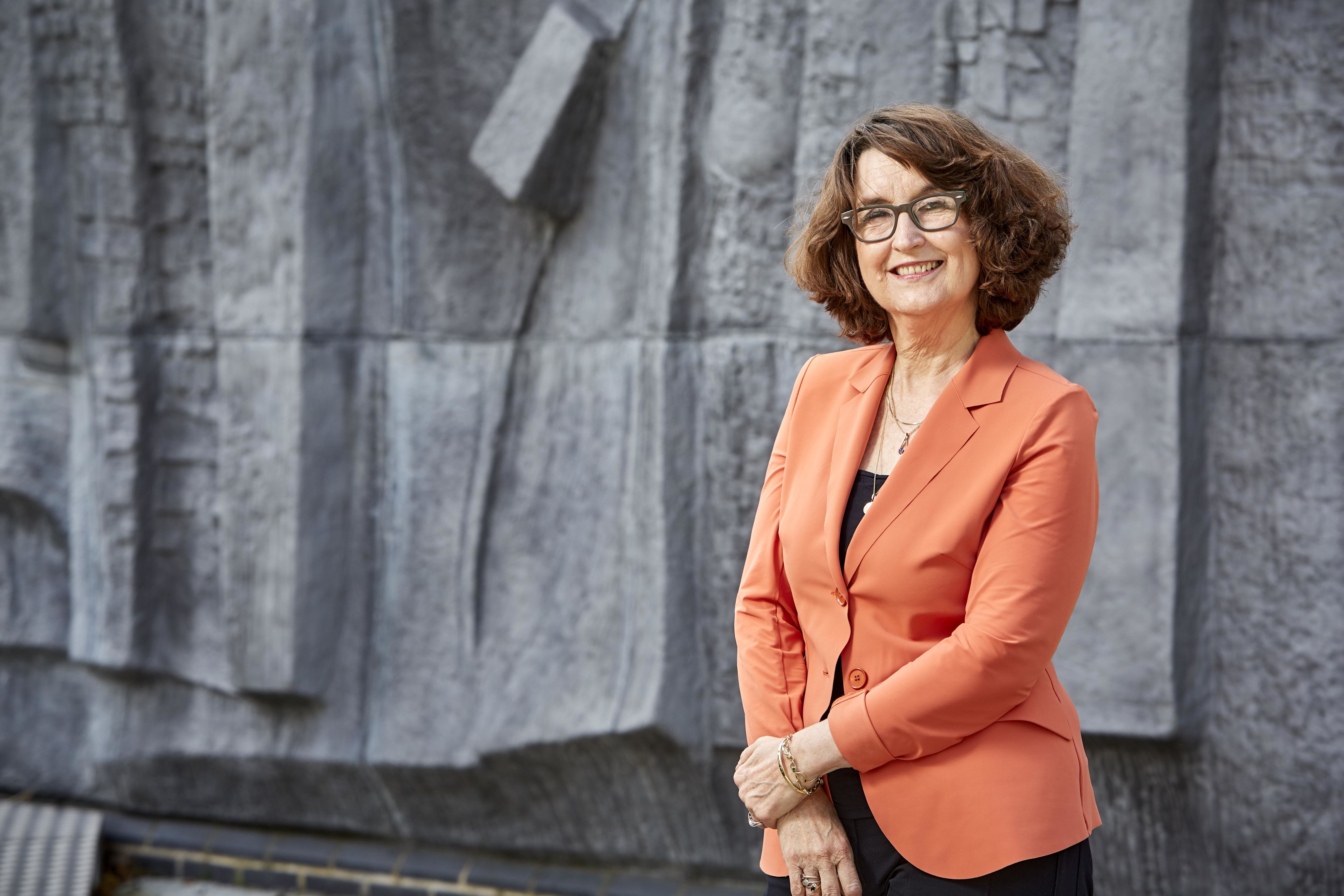
Professor Simone Buitendijk
Professor Simone Buitendijk
After four years as Vice-Provost (Education) and Professor of Maternal and Child Health at Imperial College London, Professor Buitendijk joined the University in September 2020, after Sir Alan Langlands stepped down from the role.
Professor Buitendijk said: “I am honoured to be appointed as Vice-Chancellor of the University of Leeds. The University has an impressive track record in education and research. It has clearly been thriving under the leadership of Sir Alan Langlands and I am thrilled to be provided with the opportunity to build on these strong foundations.”
Before Imperial, Professor Buitendijk held a senior leadership role as Vice-Rector at Leiden University in the Netherlands.
She was responsible for education, student affairs and diversity; and played a major role in the overall strategic leadership and direction of the university as a member of a three-person leadership team. She was previously head of a large research group in Applied Sciences at TNO in the Netherlands and concurrently Professor of Maternal and Child Health at Leiden University Medical Centre and Professor of Midwifery Studies at the University of Amsterdam Medical Centre.
Raft of awards in New Year and Birthday Honours
Professor Phil Heywood has received an MBE in the New Year’s Honours, for services to maternal healthcare overseas in his role as a volunteer for Voluntary Service Overseas (VSO).
Phil was a North Leeds general practitioner between 1975 and 1997 during which he had part-time teaching and research contracts with the University, mainly GP tutor, then Deputy Director of Centre for Research in Primary Care. He was Professor of Primary Care Development from 1997 to 2006, heading the Academic Unit from 1999. He retired from the University in 2006 and from the NHS a year later. The award relates to his post-retirement volunteering with VSO.
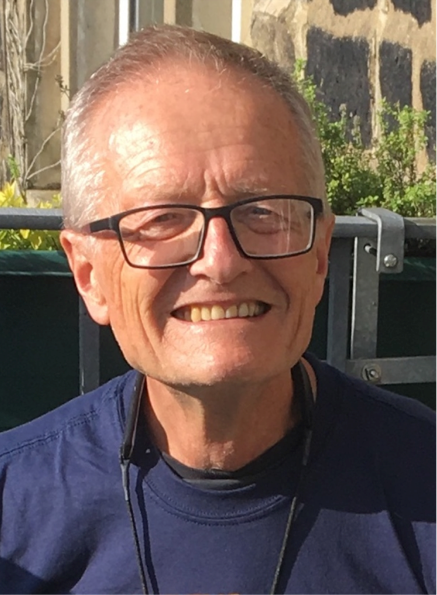
Professor Phil Heywood
Professor Phil Heywood
Congratulations to Divya Chadha Manek, the NIHR Clinical Research Network’s (CRN) Business Development and Marketing Director, who has been awarded an OBE for services to the government during the COVID-19 response as part of the Queen’s Birthday Honours.
Divya was seconded to the Government’s Vaccine’s Taskforce as the Clinical Trials Lead responsible for overseeing the UK COVID-19 vaccine clinical trials portfolio. Divya was tasked with supporting pharmaceutical companies to quickly generate the evidence required to establish the safety and efficacy of COVID-19 vaccines, by coordinating the rapid setup and delivery of large-scale vaccine trials through the NHS.
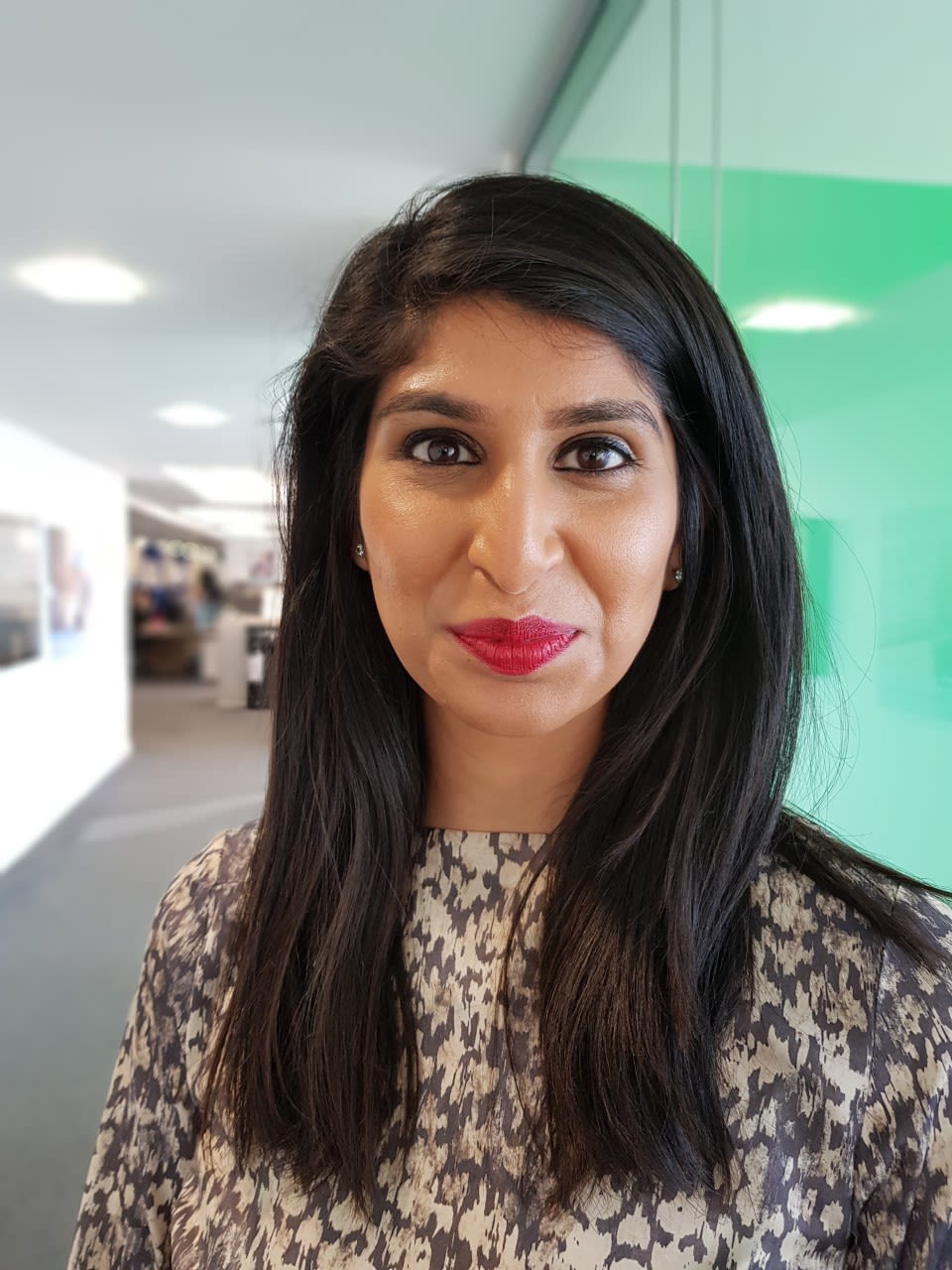
Divya Chadha Manek
Divya Chadha Manek
Dr Jonathan Sheffield, former Chief Executive, has been awarded a CBE. Jonathan has a long record of delivering operational support to a wide range of health research in the NHS. During the pandemic, he provided operational leadership for the COVID-19 research response across the Department for Health and Social Care, NIHR and NHS. Jonathan has been awarded a CBE for his “services to medical research, particularly during the COVID-19 response”.
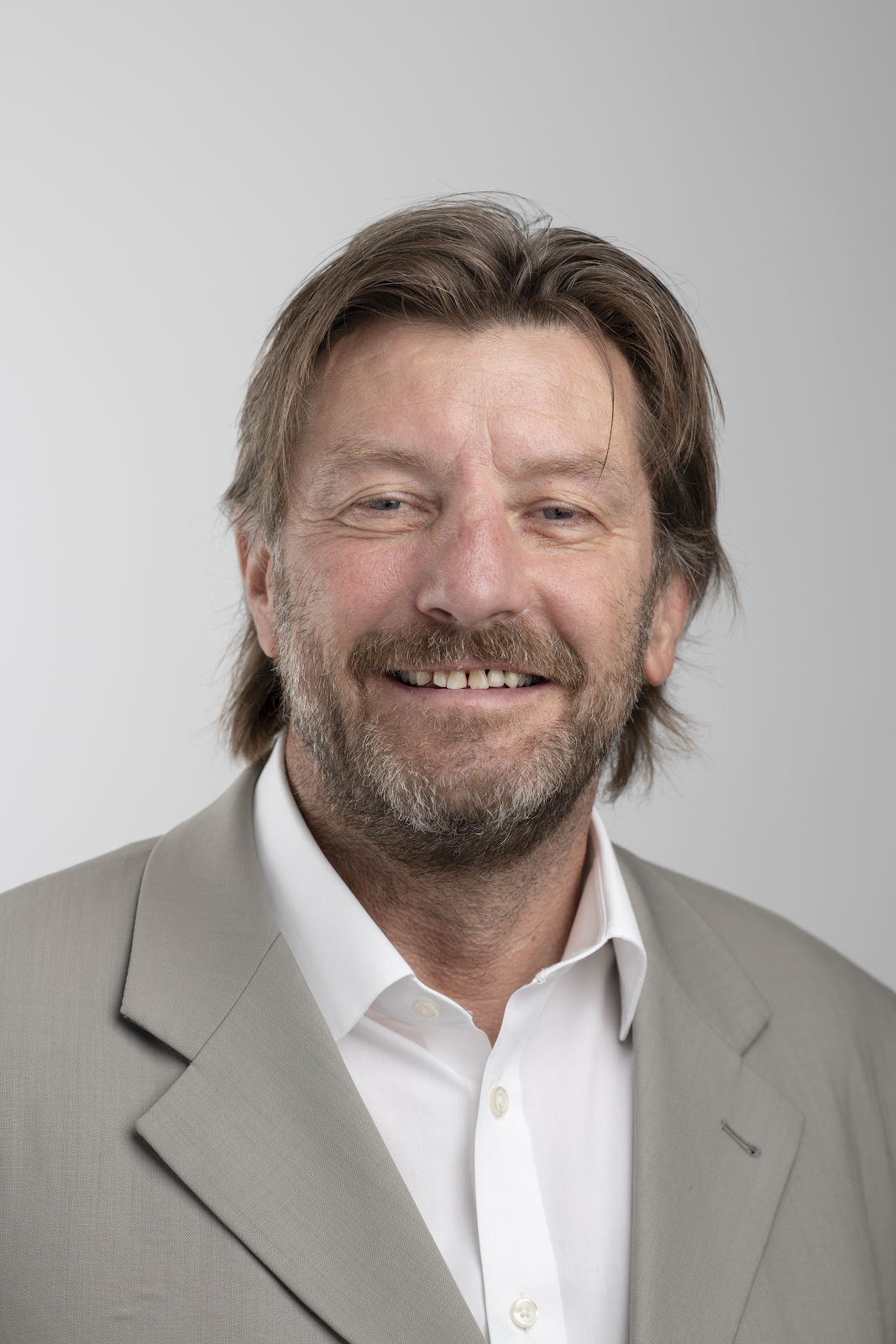
Dr Jonathan Sheffield
Dr Jonathan Sheffield
Gillian leads the way on student champion scheme
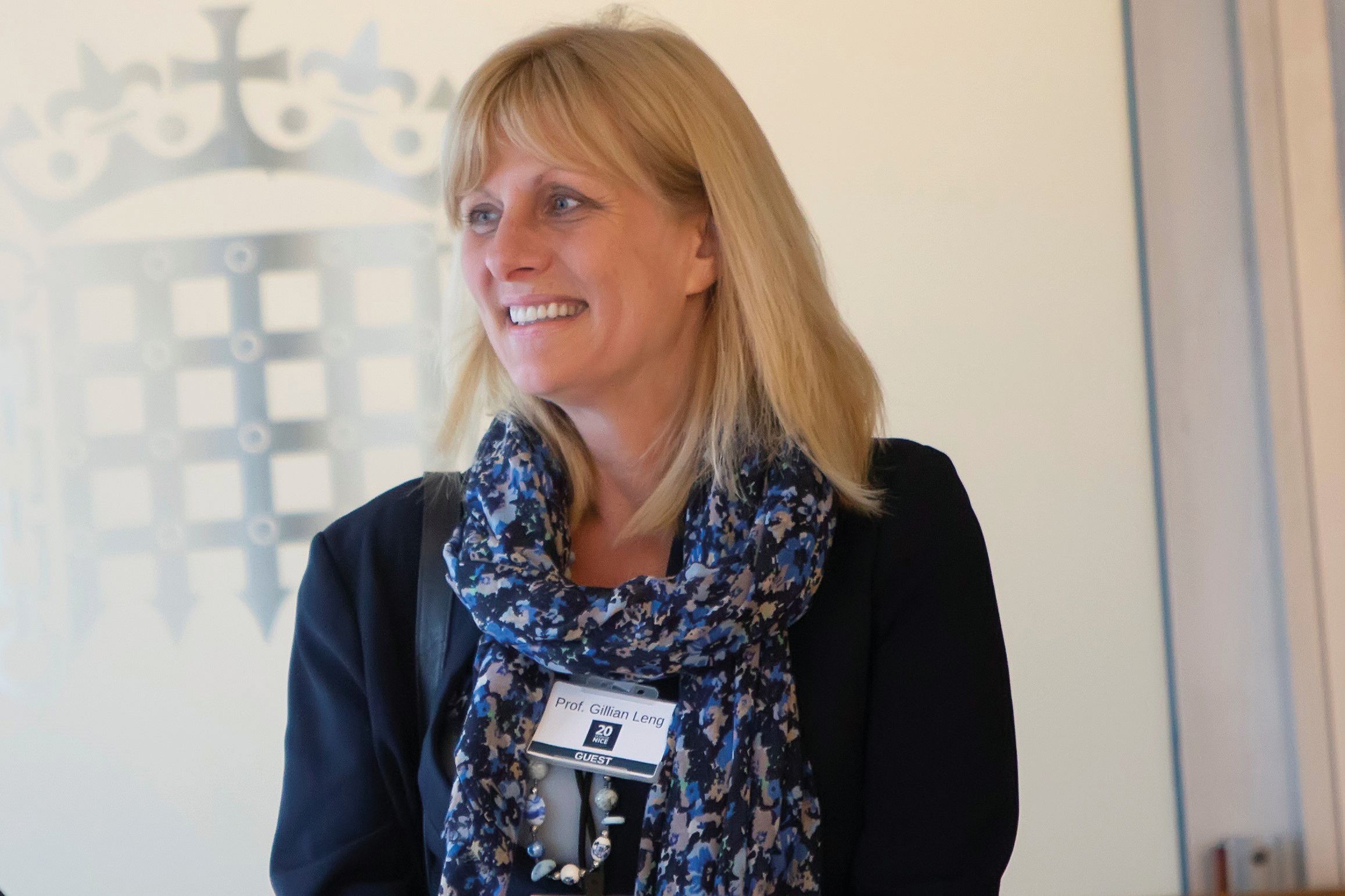
Professor Gillian Leng
Professor Gillian Leng
Each year, Professor Gillian Leng CBE (Physiology 1982; Medicine 1987; MD 1994) returns to Leeds to give a presentation to students in the lecture theatre where she spent many hours as an undergraduate medic.
As Chief Executive of the National Institute for Health and Care Excellence (NICE), she is keen for young medics to learn how to find and use good data to aid clinical decisions. She was therefore delighted that Leeds was one of the first universities to sign up to the NICE student champion scheme. The scheme improves the routine use of evidence-based information by future health and social care staff by providing students with additional training and support to become Evidence Search Champions.
For more about Gillian’s role and work visit the University alumni website.
Medicine professors receive mentions on Highly Cited Researchers list
Congratulations to Professors Paul Emery, Alex Ford and Mark Wilcox from the School of Medicine, who have been named on the annual Highly Cited Researchers 2020 list from Clarivate.
The annual list identifies researchers who demonstrated significant influence in their chosen field or fields through the publication of multiple highly cited papers during the last decade. Their names are drawn from the publications that rank in the top 1% by citations for field and publication year in the Web of Science citation index.
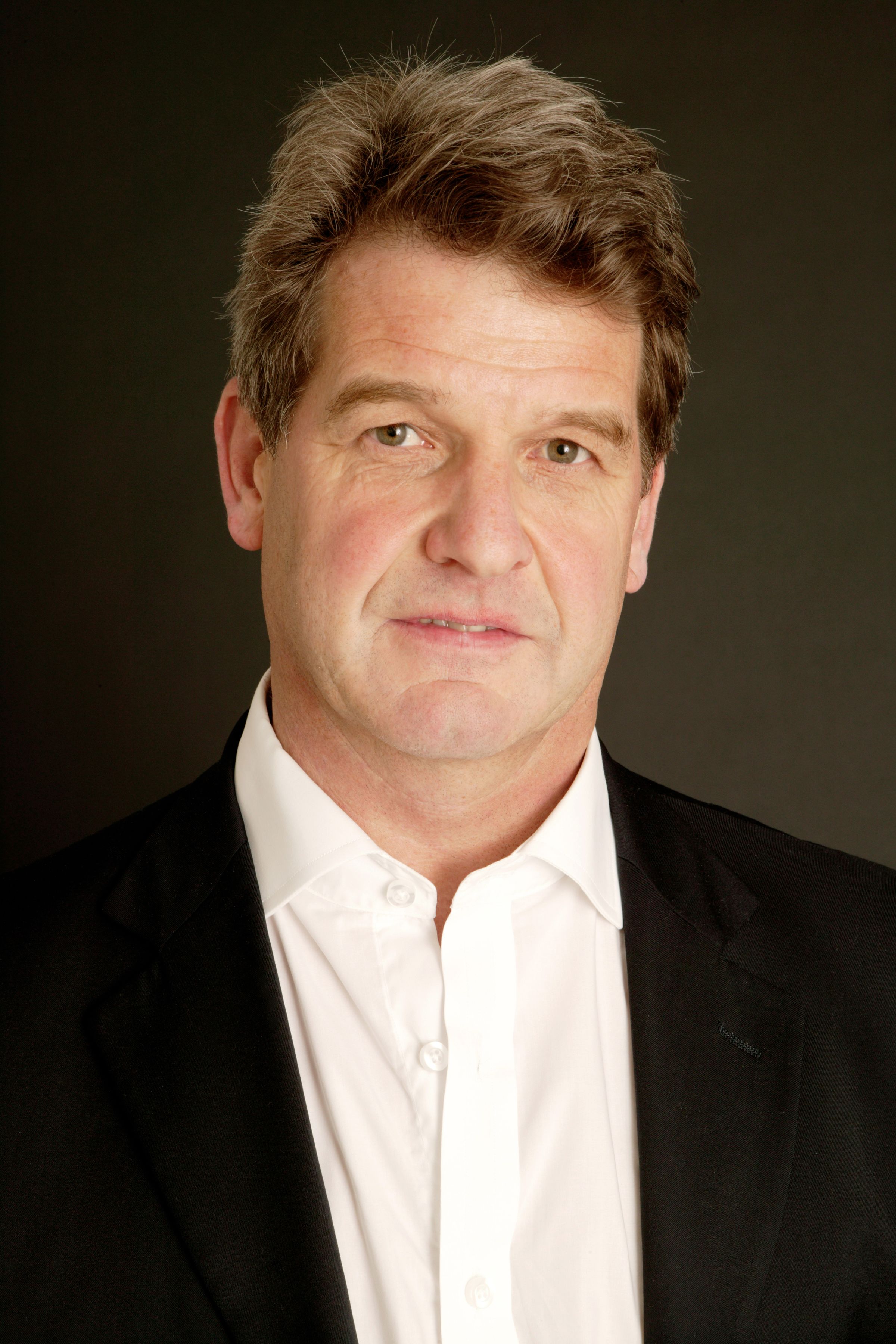
Professor Paul Emery
Professor Paul Emery
NIHR breaks new ground on COVID-19 research
The NIHR Clinical Research Network, hosted by the University of Leeds, is celebrating over one million participants who have now taken part in COVID-19 research across the UK.
NIHR data shows that a total of 1,075,000 participants have taken part in COVID-19 research, across more than 180 studies. Of these, more than 100 studies were funded by the NIHR, amounting to more than £108 million given to dedicated COVID-19 research. This milestone has been achieved across England, Northern Ireland, Scotland and Wales thanks to members of the public, NHS doctors and nurses, NIHR research staff and researchers, regulators, life science companies, research funders and policy makers.
In remembrance

Emeritus Professor
Monty Losowsky
MD FRCP
1931 - 2020
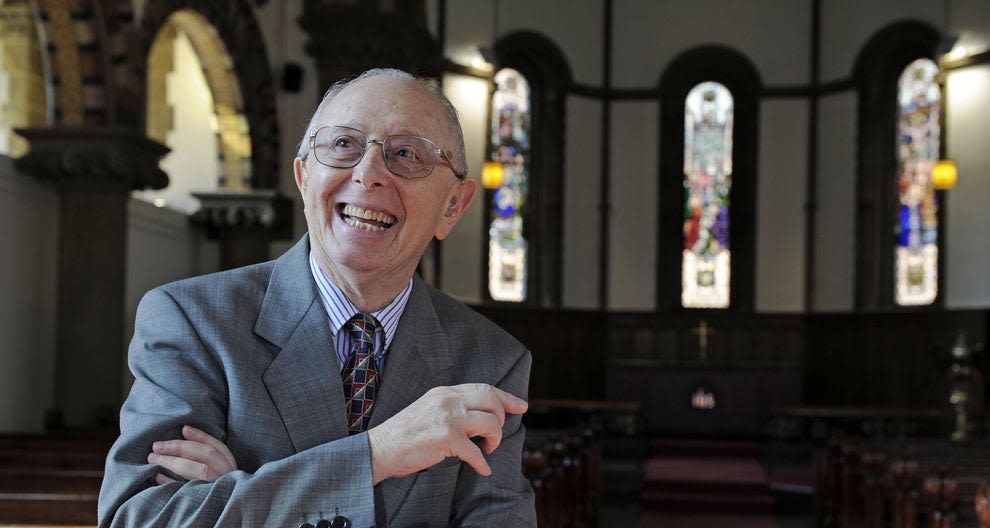
Professor Monty Losowsky
Professor Monty Losowsky
Monty Seymour Losowsky was born in the East End of London in 1931, the son of immigrant parents fleeing persecution in Eastern Europe. Monty was brought up in straitened circumstances but nonetheless excelled academically at The Coopers’ Company School.
He gained a place at Leeds Medical School, qualified with honours in 1955, became MRCP in 1958 and gained an MD in 1961. By then he had developed an interest in gastroenterology and worked at specialist liver units at the Hôpital St Antoine, Paris in 1960 and at Harvard University in 1961.
In 1962 Monty returned to the Leeds General Infirmary where he built a strong clinical research programme in gastrointestinal and liver disease. In 1969 Monty became Professor of Medicine and was appointed to develop academic departments at the newly established St James’s University Hospital.
Monty founded the university department of medicine at St James’s and established a comprehensive gastroenterology service. He was instrumental in the introduction of liver transplantation in 1986 with Geoffrey Giles and by 1992 they had established a separate hepatology service, which is now of international repute.
From 1989 to 1994 Monty was the Dean of the School of Medicine. When Monty retired in 1996 he became the Executive Chairman of the newly established Thackray Medical Museum at St James’s.
His dedication to his adopted city was recognised in 2014 when he was given The Leeds Award by the Lord Mayor. Monty Losowsky made huge contributions as a physician, scholar and educator. He never lost his enthusiasm and commitment to St James’s and it was appropriate that during his final illness he was cared for in the gastroenterology ward there.
He died on 8 May 2020 and will be remembered by many ex-colleagues, patients and friends with gratitude and great respect.
Professor Mike Green
1938 - 2020
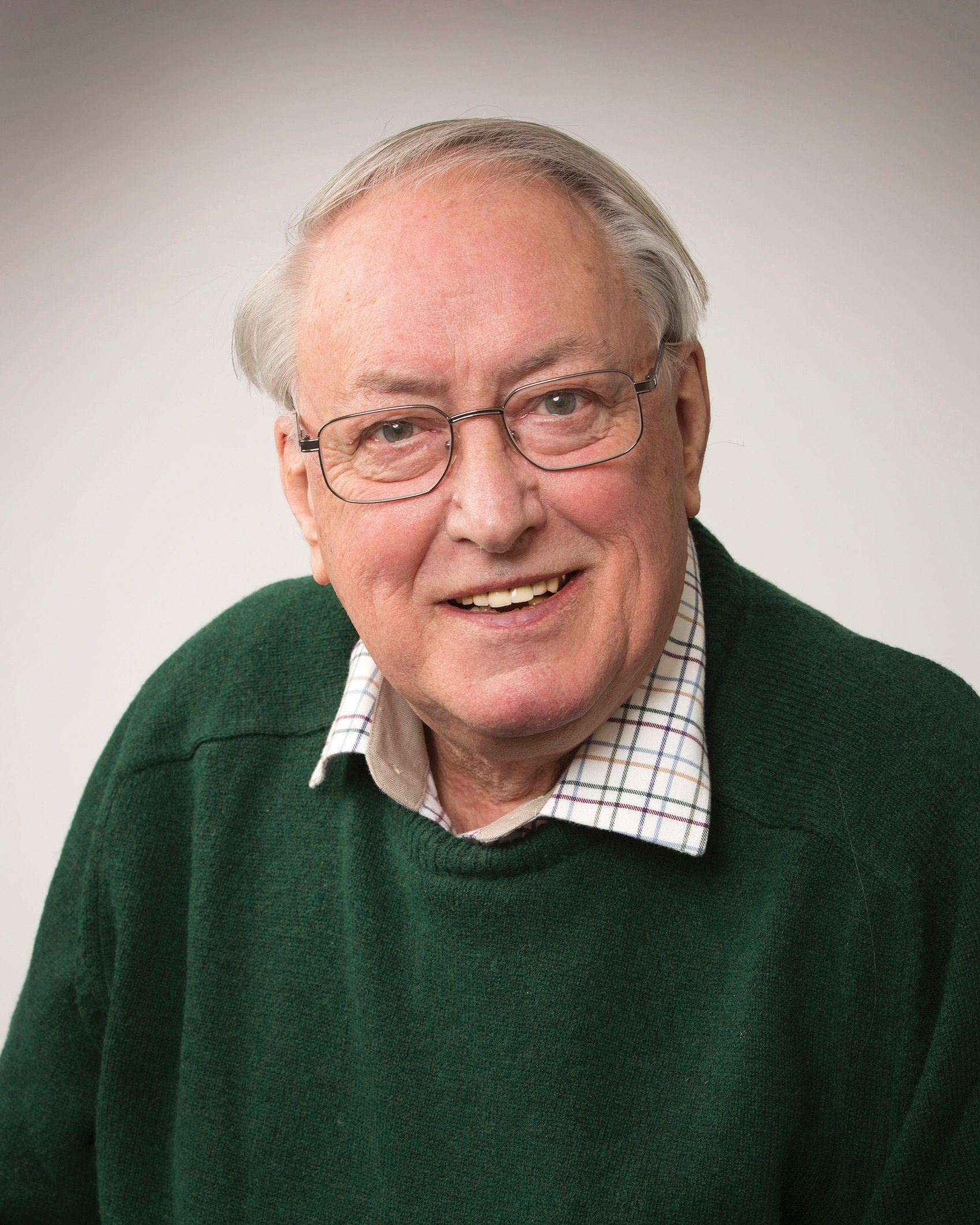
Professor Mike Green
Professor Mike Green
Professor Mike Green, Forensic Pathologist, graduated in 1962 and after posts at the General Infirmary at Leeds, he spent 1967 and 1968, with his wife Jenny, also a Leeds medical graduate, and their two young daughters, as the first full-time doctors in the South Australian Royal Flying Doctor Service.
Mike held the posts of Senior Lecturer in Forensic Medicine at Leeds Medical School in the 1970s and 80s and of Professor of Forensic Pathology at Sheffield University from 1990 to 1999. He undertook several high-profile cases and investigations. The first to bring him into the public eye was between 1975 and 1979, into the deaths of the victims of Peter Sutcliffe, ‘The Yorkshire Ripper’. Others were the Alder Hey enquiry into organ retention, the investigation into the loss of the trawler 'Gaul' and the case of Sally Clark, who had been convicted of murdering her two small children but whose conviction, following Mike’s paper on the interpretation of the pathology of lung tissue damage, was declared unsafe at a second appeal.
He was an inspiring lecturer and his courses for students at both Medical Schools were always well attended and he was also much in demand as an after-dinner speaker and guest lecturer. After retirement he and Jenny spent five years as part-time directors of Child Advocacy International in Uganda, a charity bringing services to children orphaned by HIV.
Mike grew up in Batley, West Yorkshire and came to Leeds Medical School in 1956. He contributed to the Students’ Union, and wrote for Rag Revues, Medics’ Concerts and Hospital Pantomimes for many years. Geoff Bunch, his musical partner and contemporary at Medical School, considered Mike ‘a multitalented chap who enriched the medical life of Leeds throughout his life. Just a few weeks before his death in November 2020, he addressed a virtual meeting of the Leeds Medico-Chirurgical Society from his home while relying on continuous oxygen. He lived a full life that few of us can emulate.’
He is survived by Jenny, their two daughters and four grandchildren. Full obituaries appeared in The Times on 29 December and in the BMJ on 19 January and an appreciation by his daughter Dr Tana Green is on the Sheffield University site.
Supporting the NHS
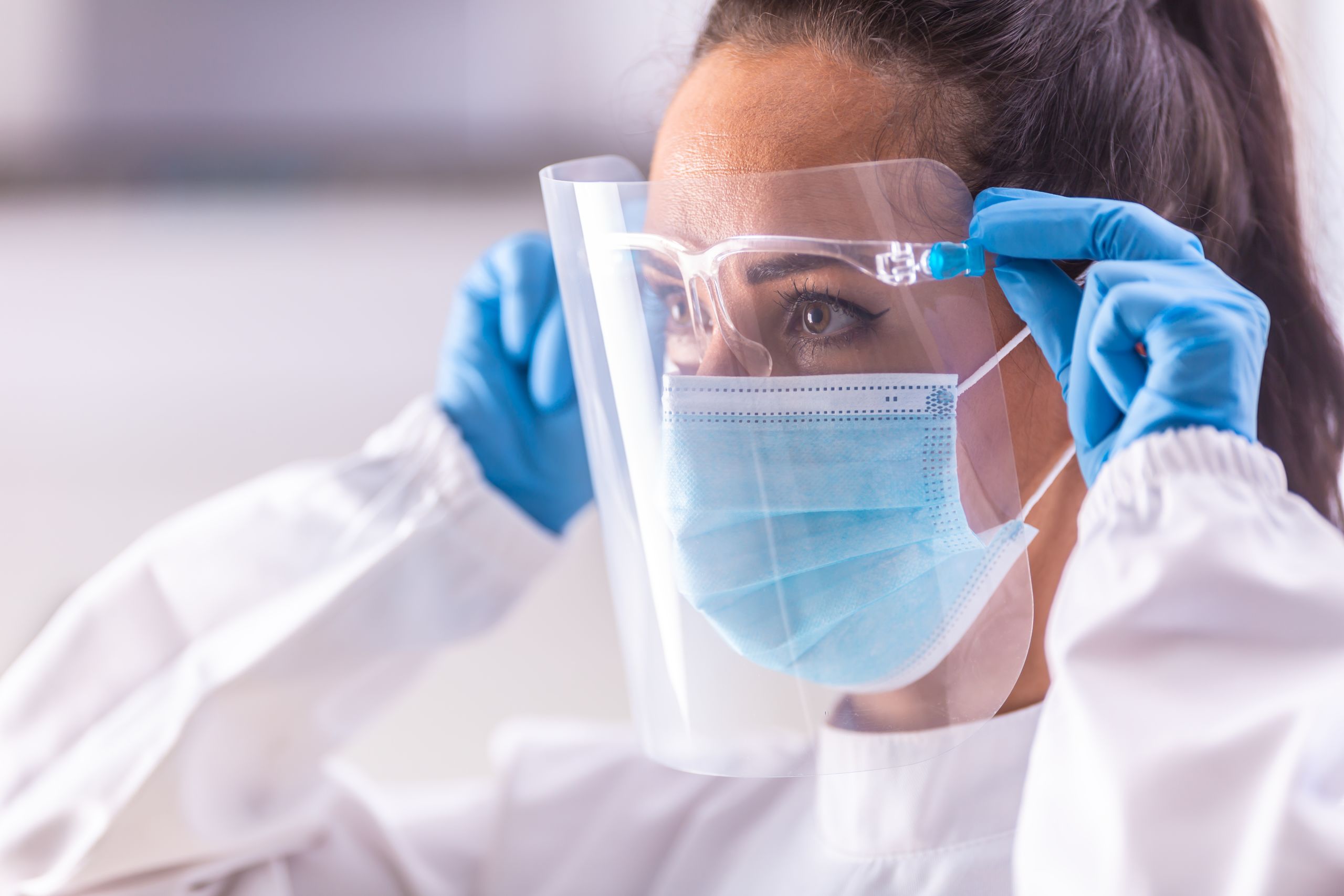
Message from the Interim Executive Dean of the Faculty of Medicine and Health
How Leeds has always led the way
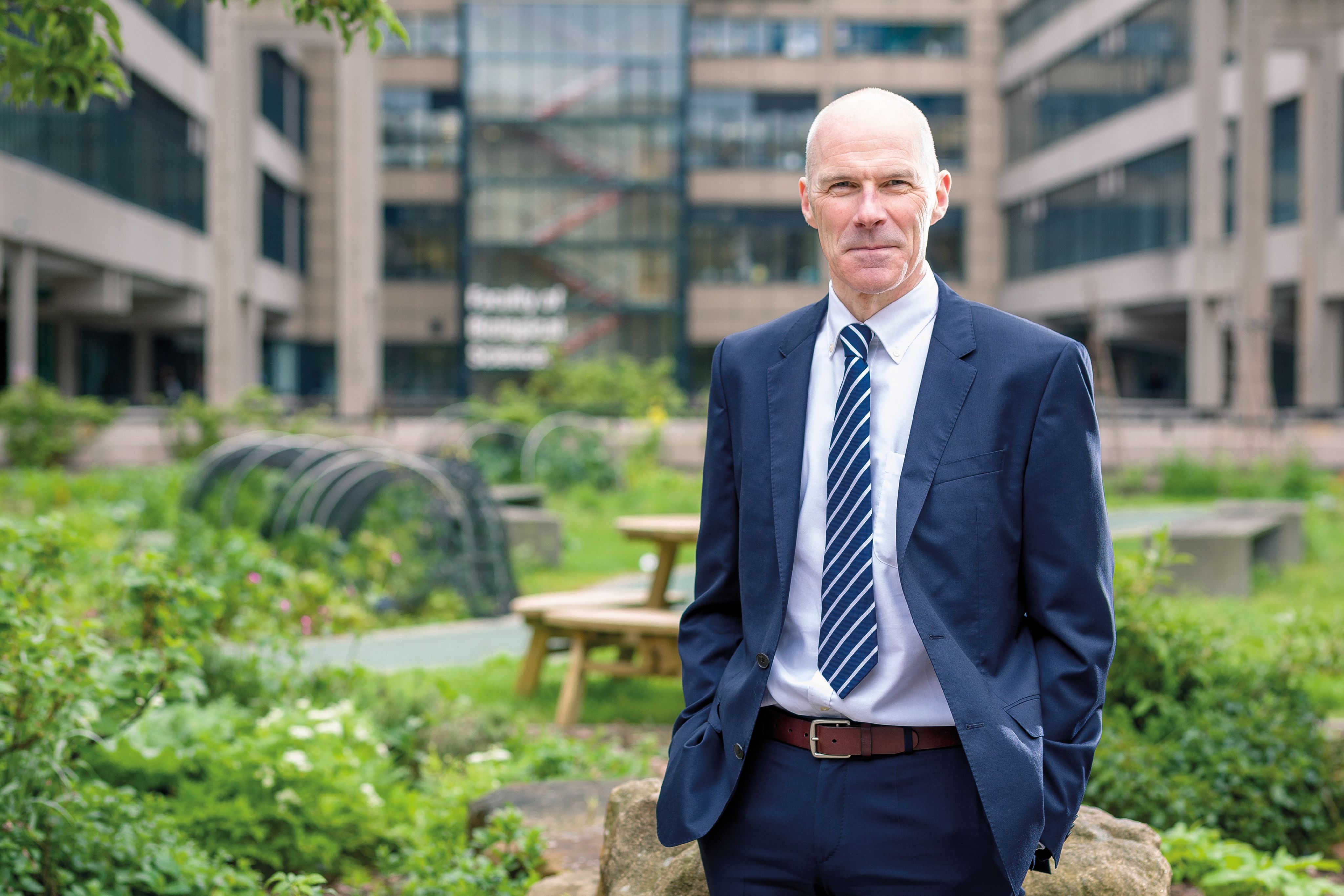
Professor Mark Kearney
Professor Mark Kearney
This edition celebrates just some of the work our staff and students have been doing over the last 18 months in the battle against the COVID-19 pandemic.
The last year and a half has shown us how resilient, creative and hard-working our staff and students are. And how our staff have led the way delivering outstanding teaching, high quality research, and supporting our students as they enter the NHS workforce.
This period has also shown us how the gap between those who have access to quality healthcare and those who do not has widened further – not just in Leeds, but around the globe.
Earlier in this edition, you’ll see we welcomed our new Vice Chancellor, Professor Simone Buitendijk to the University during 2020. Simone has a very clear vision around reducing inequalities, particularly those concerning health, and this is something she wants us to focus on going forward. The life expectancy gap can be as much as 12 years apart from one area of Leeds to another. And this is just the local picture (and pre-pandemic).
What Simone has underlined is that Leeds can lead the way in making an impact globally, not just in our own city. Universal Values, Global Change is our new University-wide strategy for now until 2030 and rooted in our desire to make a difference through working in collaboration to tackle inequalities, achieve societal impact and drive change.
History reminds us that for centuries, medics in Leeds have always led from the front. In July this year, Leeds Civic Society unveiled a blue plaque to honour Dr Edith Pechey, one of the earliest female university students, the third woman registered as a doctor in Britain, and who had a practice on Park Square in Leeds between 1877 and 1883.
Simone spoke at our inaugural Edith Pechey lecture earlier this year and I am pleased to say this will be an annual fixture in our School calendar from now on.
As we focus on our future vision to 2030, I am confident that the leading figures of our past will continue to inspire staff and students to dream bigger and lead the way in tackling the local – and global - health challenges ahead.
Professor Mark Kearney
Interim Executive Dean of the Faculty of Medicine and Health
Physician Associates at Leeds: Learning in a pandemic
The Physician Associate (PA) Studies course welcomed its first students in September 2015 and was designed with the ongoing workforce crisis in mind. At the time, this profession was virtually unheard of in the Yorkshire and Humber region, so work needed to be done to increase awareness throughout the clinical providers. Fortunately, we were successful at sharing our vision with them and they now host many of our students on placements as well employing the majority of our graduates. PAs are now working in a number of areas in the region including primary care, secondary care and mental health.
Physician Associates work as part of the multi disciplinary healthcare team; they are trained to a medical model that started life at Leeds very closely aligned with that of the MBChB. As our experience has increased the PA programme has become a distinct entity and innovative ways of delivering the course have since been introduced. As the number of qualified PAs has increased in the region our students are able to really see what the role entails in the workplace and patients and staff have welcomed them into the NHS workforce.
A group of current PA students have written a ‘day in the life of PA student during a pandemic’. This gives different perspectives of students that have experienced pre and post-COVID times.
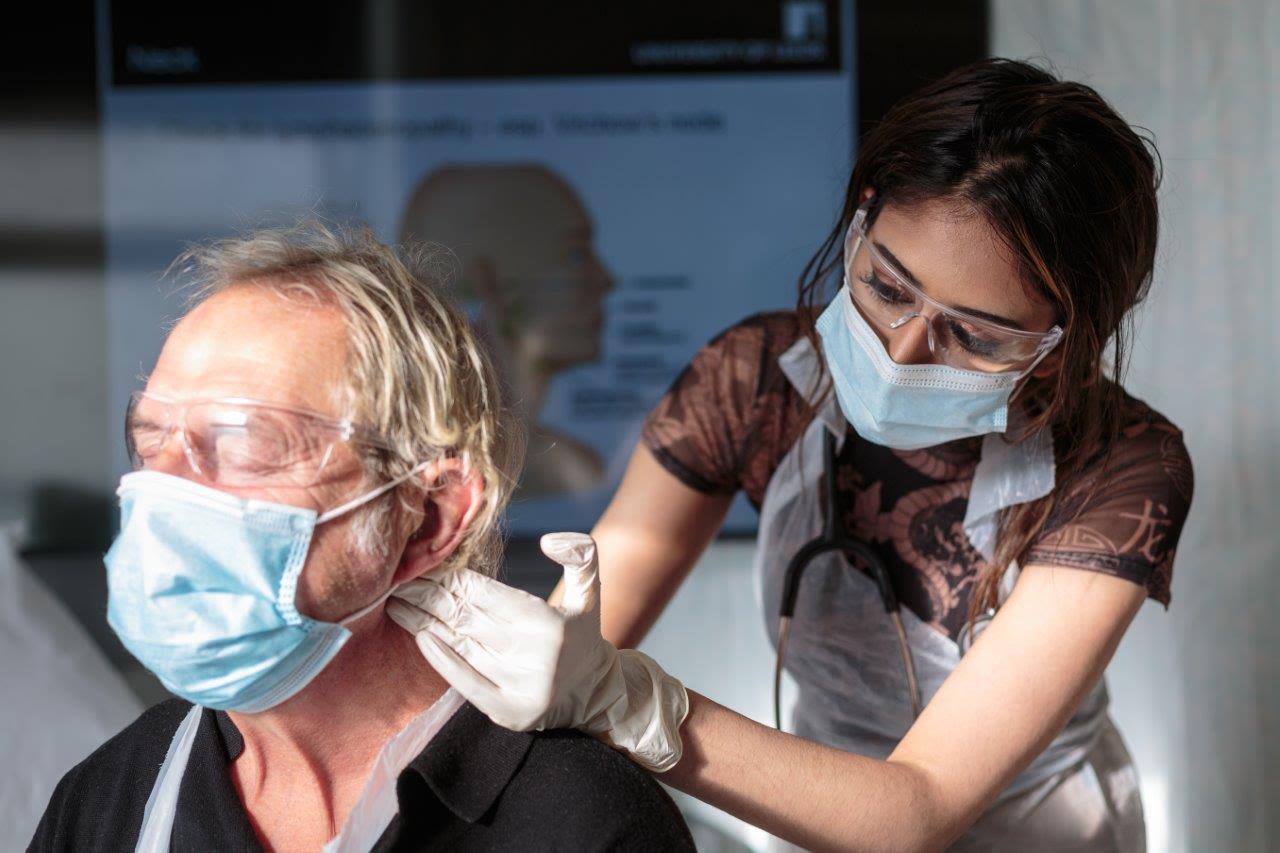
A day in the life of a Physician Associate student
First year Physician Associate student:
Training to be a PA has definitely been challenging in the current climate but has been a great learning experience. Currently, a week in the life of a first year PA student involves a mix of online teaching, face to face clinical skills and primary care placements.
Teaching online has been an interesting experience so far. With technical blips and pet appearances I feel we have still been able to have a valuable learning experience! As the course is a small cohort, split further into smaller groups in some sessions, it has been great for interacting with lecturers and peers more.
The anatomy practicals have been useful over Zoom, allowing you to put into context everything you learn by still seeing it first-hand. Clinical skills have been great too. It has given us a chance to practice our clinical skills which is invaluable for becoming a PA. It has also allowed us to build relationships with other people on the course as being online means we don’t see each other in person often. This makes you feel more supported whilst on the course as everyone is in the same boat and if you are struggling there is someone that you can talk to.
Primary care placements are different due to COVID-19 and there is less face to face contact. However it is still valuable experience in the long term and is useful to practice telephone consultations as telephone triage will always be a vital process within primary care.
Getting to placement for 9am and starting the day with your own consultation list has been a learning experience. These slots are normally filled with less complex consultations where patients present with acute problems and get progressively more complex as we build more confidence. We take a detailed history from the patient and discuss with our supervisor about the management and treatment plans for the patient.
Alongside telephone slots, there are opportunities to practice clinical skills with nurses such as injections and taking bloods which really helps in building your confidence. Face to face appointments are usually seen in the afternoon, this involves you sitting in on consultations with your supervisor, allowing opportunities to practice examinations and taking vital signs.
Emma Butterworth and Jess Tomkins (Year 1)
Second year Physician Associate student:
As a second-year Physician Associate student, my learning experience has been split into pre-COVID and post- COVID, meaning that we have been required to adapt to the challenges that a global pandemic brings. In comparison to the first year students, the vast majority of my second year thus far has involved secondary care placements across a variety of medical specialities, allowing me to further develop my skills with the aim of becoming well- rounded a Physician Associate upon employment.
Currently, I have just finished a rotation on general surgery; a fast-moving environment that has remained busy throughout the pandemic due to dealing with patients with acute and emergency surgical presentations.
On this ward, a day in the life of a Physician Associate student has largely involved clerking patients and discussing with senior staff, alongside being involved in the initial investigations and management that a patient requires. As my skills have advanced during my time as a Physician Associate student, this has allowed me to integrate more within my placements and become more involved in patient care, reflecting what my role as a Physician Associate may encompass once I become qualified.
However, like most areas of the hospital, even this speciality has been affected by COVID-19. A major example of this was when a patient tested positive for COVID-19 within the assessment unit, resulting in the entirety of the assessment unit no longer being able to accept any patients. Unsurprisingly, this resulted in major implications for other areas of the hospital until the situation could be resolved; yet another reminder of the daily challenges that COVID-19 continues to bring. Despite this adversity, the staff remained unwavering in their medical duties, allowing me to reflect on their perseverance in providing optimal medical care for all their patients.
Overall, a day in the life of Physician Associate student is varied and exciting, with rotating around differing specialities constantly bringing new experiences and challenges. As I begin to approach the end of my time as a Physician Associate student, I feel that these experiences continue to develop me into a competent practitioner ready to join the ever- expanding Physician Associate workforce within the NHS.
Sarah Carbert (Year 2)
Mentoring newly qualified doctors in a pandemic
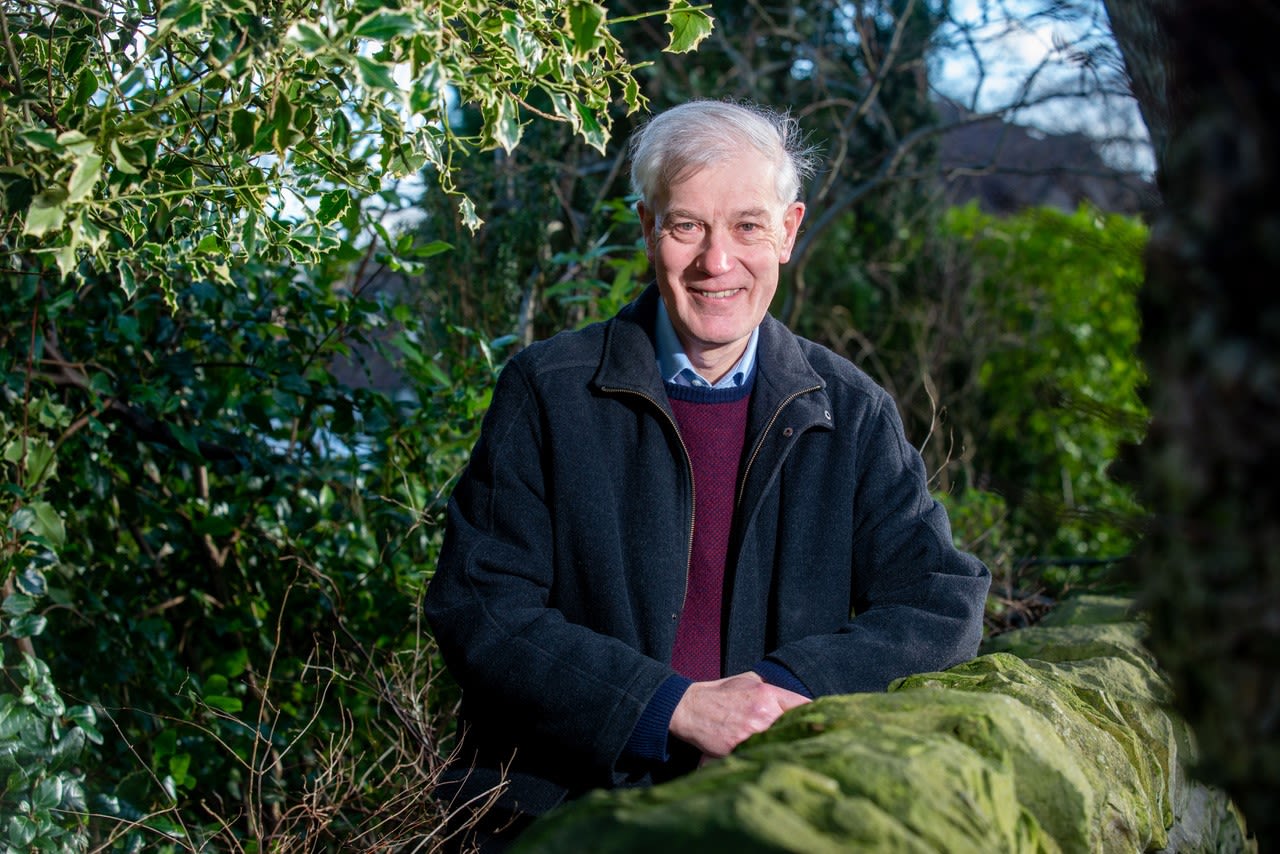
Professor Peter Howdle
Professor Peter Howdle
One of the responses by medical schools in the UK to the pandemic was to graduate the final year medical students 2 - 3 months earlier than usual so that they could start clinical work.
Obviously a proper assessment was made of their capabilities and final year students in Leeds started their clinical work in hospitals in April and May 2020.
I was asked by the medical school if I would volunteer to mentor one of these newly qualified doctors in order to ensure they were fully supported during their early days and weeks in the work place since they were likely to be more anxious than normal in view of the slightly earlier graduation and the unusual circumstances as a result of the pandemic.
My mentee was allocated to work at Pinderfields Hospital, Wakefield and was there for two months undertaking the duties of an FY1 doctor.
The mentoring role in these circumstances was potentially challenging but I considered it was important and a useful contribution to the overall efforts of the NHS in the crisis.
Charlie and I had not met and a face-to-face meeting was not possible due to the COVID-19 restrictions but we spoke frequently by phone during his time at Pinderfields.
He was clearly well-supported by colleagues there and only expected to work within his level of competence. I was pleased to hear that no unexpected demands were made. I was able to reassure him that many of the worries he may feel were common, and indeed I could remember similar anxieties of my own when starting as a house officer at St James’s almost 50 years ago!
Charlie went on to start his FY1 year, as already arranged, at a hospital in south London. However, we have kept in touch regularly and all is well.
I have enjoyed the experience of mentoring in these circumstances and I think it has been of help to Charlie. Sadly we have still not been able to meet but we hope to do so in Leeds when he is eventually able to attend a graduation ceremony. The willingness of medical students to respond to calls for help in the pandemic reminds us all of the altruism which underlies our professional vocation.
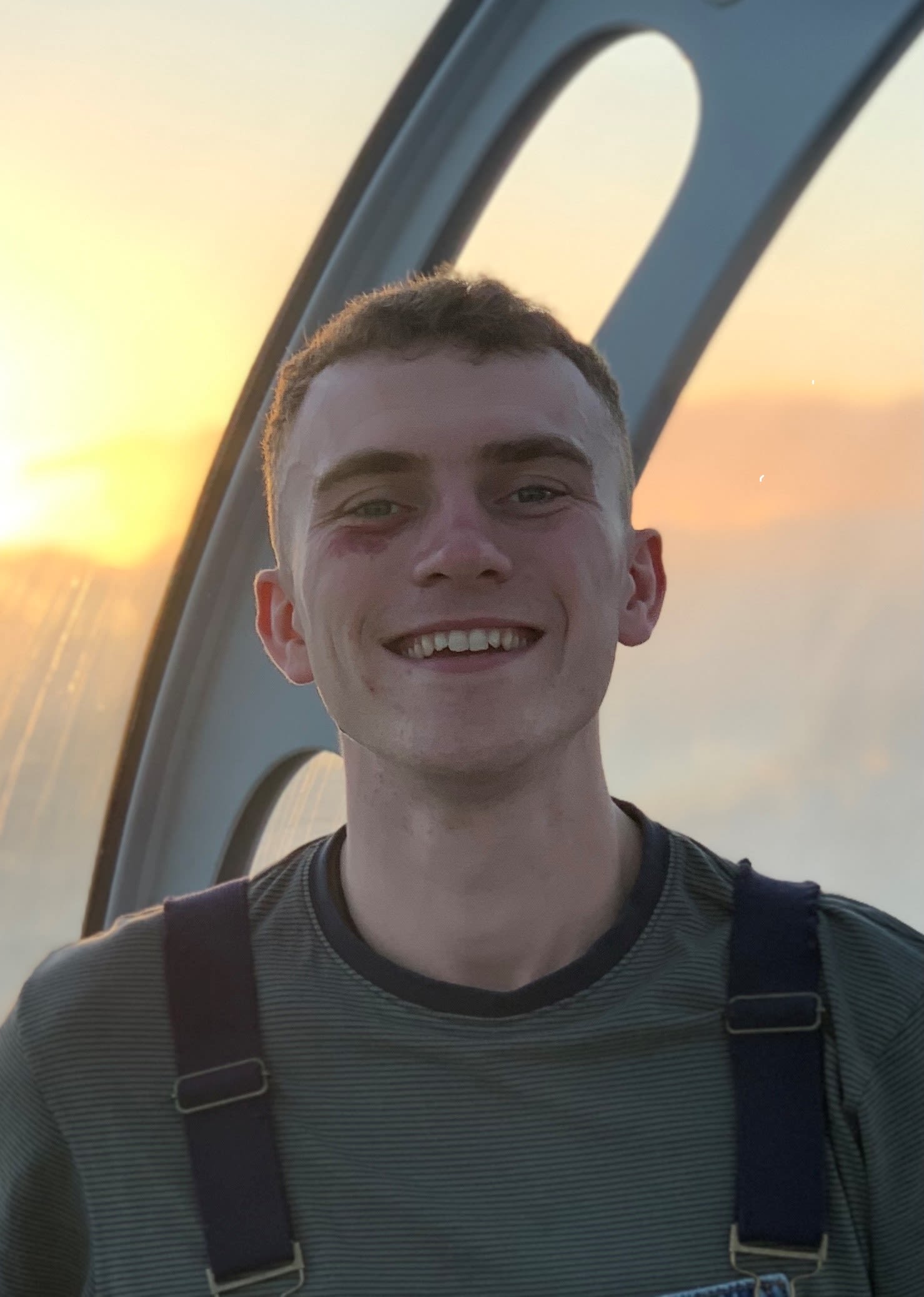
Charlie Anderson
Charlie Anderson
As Peter has explained, the end of my time at medical school didn’t quite go as expected.
Rather than having to sit an exam, my classmates and I were individually assessed against criteria set by the Leeds School of Medicine. This was to allow those of us who met the criteria to graduate early and start work to give a helping hand in the ongoing COVID-19 pandemic. I was successful and as a result was given a job as a Foundation Interim Year 1, or ‘FiY1’, doctor at Pinderfields Hospital in April.
The university organised a mentoring scheme for those of us taking on this new role, and Peter was assigned as my mentor. As I’m sure you can imagine, I and my fellow FiY1s were all feeling extremely nervous about starting work. It was a shame that Peter and I could not (and still cannot!) meet in person, but we had frequent phone calls throughout my two-month placement at Pinderfields.
I found Peter to be extremely encouraging and kind. He reassured me that all of my worries were normal. And, of course, he was correct. Everything turned out to be fine. I was very well supported at work and found it to be a very valuable experience. To have the Foundation Year 1 (FY1) Doctors there to guide us was extremely useful and something I did not take for granted (in a normal August start, these FY1 doctors would have rotated onwards to their new jobs).
Since August I have been based at a hospital in South London, and I am currently working in Orthogeriatrics. Doing the two-month FiY1 post in Pinderfields made the experience of starting as a FY1 in August much less daunting and much more manageable. Peter and I continue to stay in touch, with regular phone calls. Peter’s ongoing support and guidance has been invaluable, not to mention many great stories from his time as a junior doctor!
I feel lucky to have someone as experienced as Peter who I can speak openly and honestly to about work. This is a role that my own supervisors, understandably, cannot always fill.
I too hope to be able to meet with Peter one day. As he has said, maybe there will be an opportunity to meet when myself and my classmates are able to celebrate graduation in Leeds together.
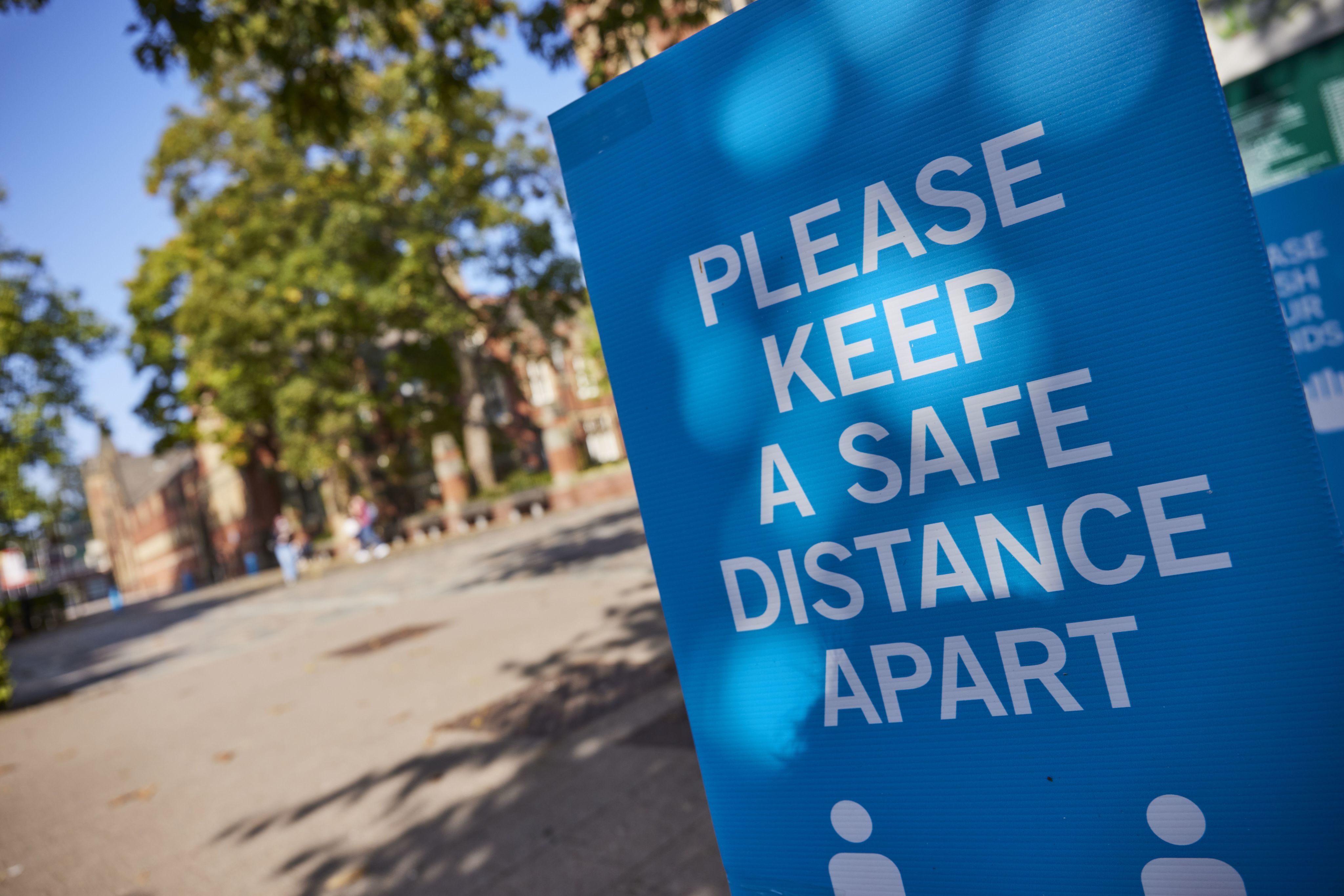
Fund supports students through challenging times
The COVID-19 pandemic has had a massive impact on our students. Whether it led to a disruption to their studies or them having to join frontline NHS staff earlier than they expected, this year brought major upheaval for our students.
For some, these strains came on top of considerable financial barriers thrown up by the pandemic – the loss of part-time employment, the additional cost of accommodation for students with household members who were shielding, and the extra cost of childcare for those students who are parents.
To meet the demands of these extraordinary times, a special fund was established to offer financial support to these students – and thanks to the generosity of Leeds alumni and other donors, we were able to help them address the financial crisis that the pandemic had introduced into their lives.
Generous gifts to the NHS Workforce Fund supported a range of undergraduate and post graduate students in many medical and healthcare disciplines. This support enabled us to award around 100 grants, averaging almost £650 to students.
The fund also enabled us to expand our counselling services through recruiting extra staff, increasing the availability of those with trauma specialisms to work with students throughout the ongoing crisis.
Professor Paul Stewart, Executive Dean of the Faculty of Medicine and Health, paid warm tribute to everyone who supported our students during the unprecedented challenges of the past year: “The individual stories of our students are a telling reminder of the challenges our future NHS workforce faces on a daily basis as a result of the COVID-19 pandemic, but it is heartwarming to see how our alumni and donors have made a real difference.”
Simon Jenkins, Alumni and Development Team
I relied on this part-time work to support my studies. With healthcare shifts becoming scarce, I wasn’t sure how I was supposed to afford anything. It becomes hard to enjoy the student experience with that worry at the back of your head.
